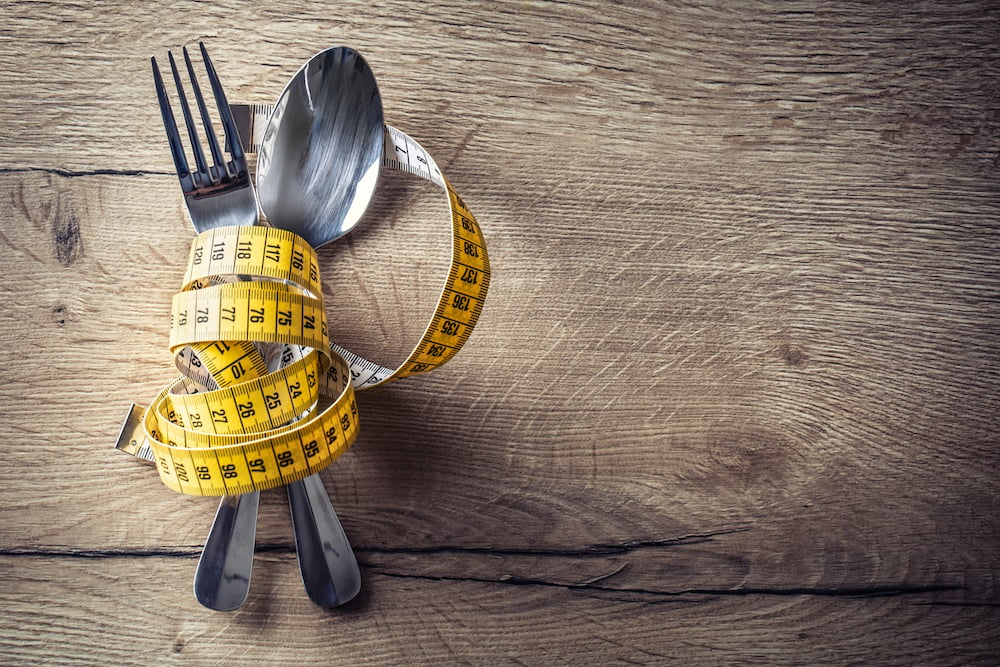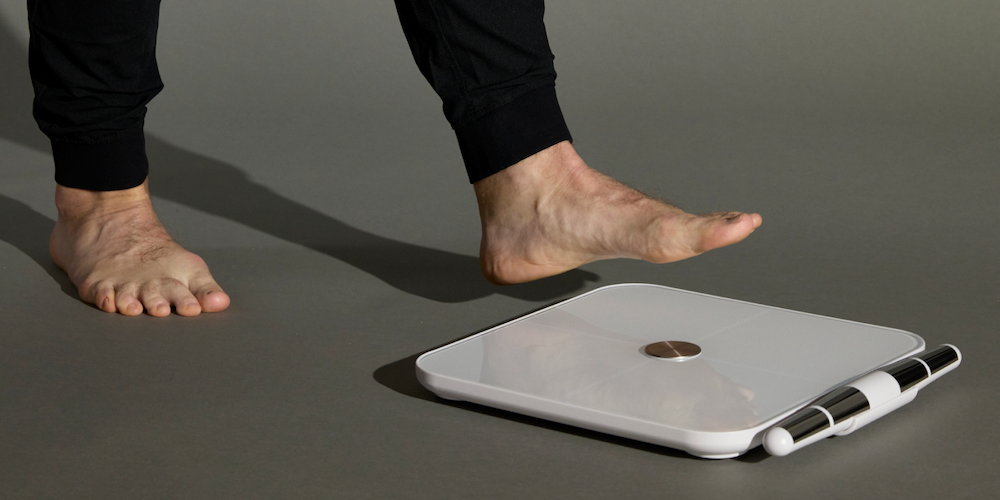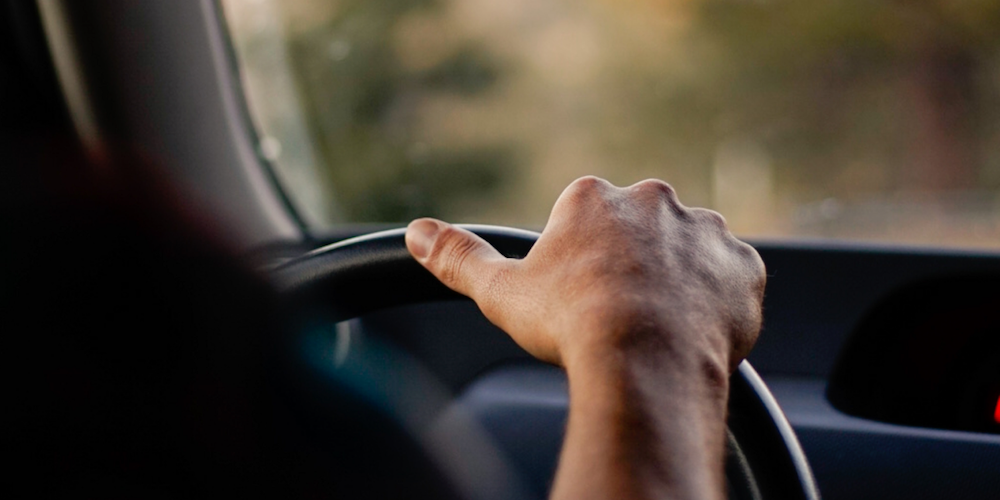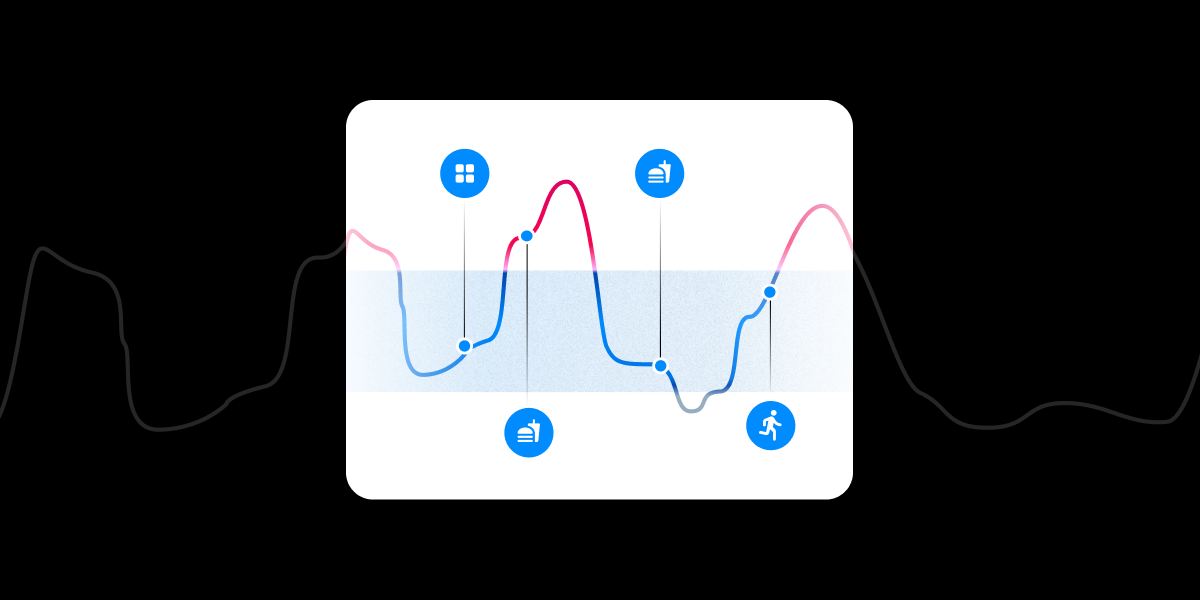Depending on the research you read, people try on average between 55 and 130 diets in their lifetime and even when they are successful, any weight loss is hard to maintain. Over one-third of lost weight tends to return within the first year, and the majority is gained back within 3 to 5 years. So, while we understand all the benefits of maintaining a healthy weight, why do we find it so hard?
Diets are transient
Shiny new hardback book. Check. Branded ‘allowed’ foods. Check. Fridge full of stuff you’ve never eaten before and don’t know how to cook. Check. You’re ready to start following a diet plan. Everyone else in the house will continue eating as usual. So, for the next X number of weeks there’ll be double the food prep. But that’s ok, because at the end of it you’ll be thinner, and everything can go back to normal.
In the short term the plan works. We enter a different world for a limited amount of time, always with an eye on the end date. But without any understanding of why those weird foods helped you lose weight, or how to adapt meals to fit into everyday life, the old foods come back in and the weight goes back on.
Diets are no fun
Food is a key part of our cultures, identities and traditions. Taking the time to enjoy a delicious meal or share food with friends and family is, and should be, a pleasure. Highly restrictive diets take the fun out of food and only serve to make us wish they were over - making them inevitably unsustainable.
The language of dieting is also negative, which has a powerful influence on our mindset. Phrases such as ‘I can’t’, ‘I’m not supposed to’ convey a sense of self-imposed isolation, or prison. Not only do we start looking for a way to escape (i.e. an excuse to eat a ‘forbidden’ food), once the diet is over we consider ourselves free to satisfy our cravings for all the foods we have been dreaming of.

Your body adapts to a higher weight, and wants to keep you there
Our bodies are constantly reacting to the environment we create for them; the external temperature, exposure to daylight, stress levels, and energy supply. When you eat more and start to gain weight your body works hard to adapt your internal systems to the increased intake of energy, to prevent continuous weight gain. Your weight gain plateaus and your body is where it wants to be, in a steady-state. Unfortunately, our obesogenic environment of a constant supply of processed carbohydrates and the need for blood glucose homeostasis drives the excess energy into fat stores, and weight gain.
The same regulation towards a steady-state is true in reverse, up to a point. Restrict your energy intake and you lose weight, until you body hits the brakes, worried that you will starve, establishes balance and you plateau. By mixing things up - tweaks to your food and exercise - you can start losing weight again.
But what happens when you reach your goal weight? Why is it so hard to stay there?

Maintaining homeostasis requires a complex interplay of multiple processes in your body, all driven by the need to balance your blood glucose. When you have gained weight, and been there for a while, there seems to be a change in these regulatory systems. This new weight becomes the ‘set point’ at which your body is happy. Think of a balloon that has been blown up. The first time takes quite a bit of effort, but after that it gets easier and easier, until the balloon no longer fully deflates - it has settled at a new size. When you lose weight, rather than settle at the new lower weight, your body initiates signals to actually try to enable weight regain, back to the heavier set point it had become accustomed to.
When you think in terms of our evolution it makes sense that our bodies don’t make it easy for us to lose weight. Until very recently the availability of the next meal was not guaranteed, so our survival depended on our ability to take advantage of food when it was available, and store energy efficiently.
That doesn’t mean there is nothing you can do though. The types of dietary changes you make, introducing some physical activity and establishing different habits can all overcome the physiological challenges and maintain your weight at the level you have chosen.

Diets are like ‘driving blind’
When you drive a car, you constantly correct your course (hopefully!) to steer in the right direction, avoid obstacles and reach your destination safely. This approach works because you have a rapid feedback loop: your eyes see the road, your hands and feet adjust the direction or speed of the vehicle, and you start the loop again. This process happens every single second that you’re driving the car because the situation changes by the second. Now imagine trying to drive a car if you could only look at the road once every five minutes. Not an attractive proposition.
By following a diet plan your only feedback is your weigh-in. But your body is constantly reacting to its immediate environment - the food you are eating, your movement, and where you are. To balance your blood glucose (like staying on the road) your body is in a permanent state of flux. Weighing-in, even once a day, doesn’t tell you what the diet is doing to your body, or why. It is similar to driving and only seeing the road every five minutes — to really get to where you want to be in an efficient manner you need to have better data. Driving blind is a poor way to reach a goal.

Time to take responsibility and a long-term view
We look to diet books and gurus to give us a quick fix, take all the decision making out and all the responsibility too - ‘that didn’t work, try something else’. But, ultimately we make our choices, and we need to take responsibility for them. Fad diets don’t allow you to do that. But Limbo is different. By viewing your blood glucose levels alongside the knowledge and tips from the in-app nudges, you can see when your foods have turned off the fat burning process. This unique process of learning about your body, and how your choices impact not only how you feel now, but your progress towards your goals, gives you the tools you need to make a decision. Towards your goals. Or away. You decide.
